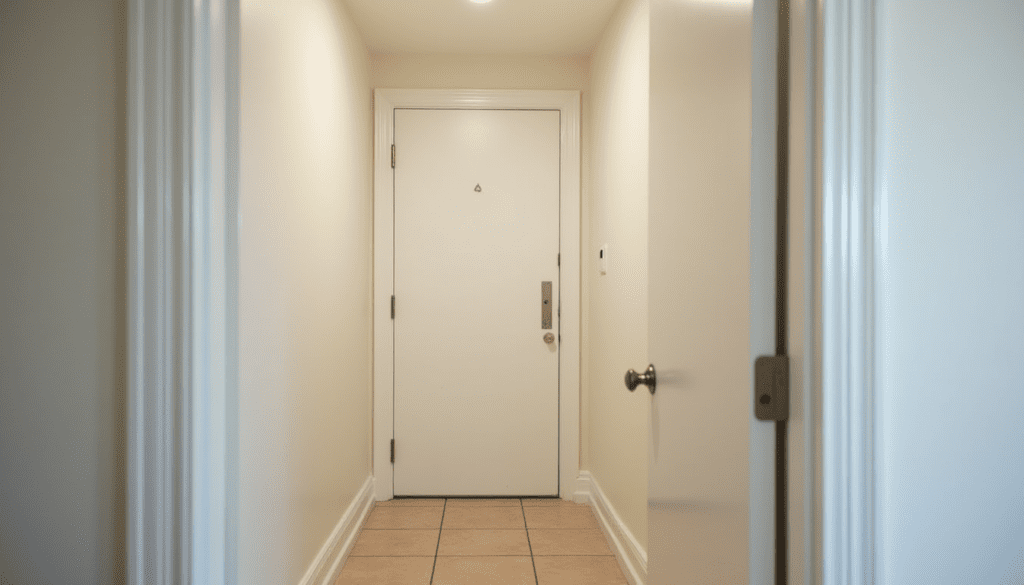For many landlords in Newark, NJ, one of the most frustrating challenges is dealing with tenants who consistently pay their rent late. Whether it happens once in a while or becomes a pattern, late payments disrupt cash flow, create stress, and in some cases, trigger legal disputes. Understanding the legal framework in New Jersey, setting clear lease terms, and practicing effective communication are crucial steps in protecting your property investment. This guide explores what Newark landlords can legally do when tenants fall behind, how to prevent habitual late rent, and strategies to balance firmness with fairness.
1. Understanding the Problem: Habitually Late Rent
Before rushing into legal actions, it’s important to define what it means for a tenant to be “habitually late.” In Newark, a single missed rent date may not justify harsh penalties, but repeated lateness—such as paying five days late every month—can impact your ability to pay the mortgage, utilities, and property expenses. Over time, these delays reduce profitability and increase stress for landlords.
When tenants consistently pay rent late, landlords often face multiple challenges:
- Cash Flow Problems: Property expenses such as mortgage, taxes, and insurance depend on timely rent payments.
- Legal Risks: If you respond incorrectly—like locking tenants out or charging unlawful late fees—you may face penalties yourself.
- Property Upkeep Issues: Without steady income, it’s harder to keep the property well-maintained, which can harm its long-term value.
According to the New Jersey Courts Landlord-Tenant Guide, habitual late rent is one of the most common causes of disputes. The law favors tenants in many situations, so landlords must act carefully and within the rules.
2. Local Laws & Legal Framework in Newark, NJ
Newark landlords cannot simply evict a tenant the first time rent is late. Under New Jersey law, tenants have strong protections, and landlords must follow specific procedures before pursuing eviction. For example, there are rules about grace periods, allowable late fees, and the proper legal notices that must be served.
New Jersey Landlord-Tenant Laws
The Truth in Renting Guide published by the New Jersey Department of Community Affairs is the official handbook outlining tenant and landlord rights. In New Jersey:
- Rent is considered late the day after it is due, unless the lease specifies a grace period.
- Landlords may only charge late fees if the lease agreement explicitly states the fee and the amount is reasonable.
- Eviction requires a court order—self-help evictions such as changing locks or removing belongings are illegal.
Newark Rent Ordinance
In addition to state law, Newark enforces rent control policies. If your property falls under Newark’s rent control board, there may be additional restrictions on how late fees can be applied or how rent increases are handled. Failing to comply with these local rules can put landlords at risk of fines.
Tenant Protections
New Jersey courts often give tenants opportunities to catch up on rent before eviction proceeds. Judges may consider financial hardship or health issues, which means landlords should be prepared with thorough documentation of late payments and communications.
3. Lease Terms: Crafting Clear Policies
The lease agreement is your strongest defense against late rent. A clear, legally sound lease protects both landlord and tenant by setting expectations upfront. Many Newark landlords get into disputes because their leases are vague or outdated, which leaves room for misunderstandings.
Key Lease Elements
- Rent Due Date: Specify the exact day rent is due each month.
- Grace Period: State whether tenants have a legal or contractual grace period before late fees apply.
- Late Fee Policy: Clearly outline the amount of late fees and when they are charged, ensuring compliance with New Jersey law.
For example, a simple clause could read: “Rent is due on the 1st of each month. A grace period of five (5) days is provided. Rent received after the 5th will incur a $50 late fee.”
Without these clear terms, enforcing late fees or eviction becomes much harder. Always review lease clauses with an attorney familiar with Newark’s rental laws or consider hiring a local property management company that handles lease drafting and tenant enforcement.
4. Grace Periods & Late Fee Clauses
One of the most frequent points of confusion between landlords and tenants is the grace period for late rent. In New Jersey, state law requires a five-day grace period for senior citizens and people receiving government benefits. For other tenants, a grace period is not required unless written into the lease. Many Newark landlords voluntarily provide one to avoid disputes.
How to Set Fair Late Fees
Late fees should be reasonable and proportional to the monthly rent. Excessive charges may be considered illegal or unenforceable in court. For instance, charging $200 for being a day late would likely not hold up in front of a Newark judge. A flat fee or a small percentage of rent is typically acceptable.
According to the NJ Courts landlord-tenant guidelines, judges often strike down unfair late fees. This means it’s essential for landlords to follow best practices and include only enforceable amounts in the lease.
Communication About Fees
Tenants should understand that late fees are not optional penalties but part of the legal agreement. Reinforcing this through clear communication prevents future arguments. At the same time, landlords should avoid using late fees as a primary collection strategy—they work best as a deterrent, not a solution.
5. Communication Strategies with Tenants
Even with a strong lease, communication remains the most effective tool for dealing with tenants who pay late. In Newark, where courts emphasize tenant protections, being able to show that you reached out and tried to resolve the issue can make all the difference.
Early Outreach
Contact your tenant as soon as rent is late, even by one day. A polite reminder by phone, text, or email often resolves the issue quickly. For recurring late payers, schedule a meeting to discuss why payments are delayed. Sometimes, issues like inconsistent income or unexpected expenses are temporary, and a short-term plan can help.
Written Communication
Always follow up verbal conversations with a written message. This documentation shows the court that you acted professionally and gave the tenant ample opportunity to correct the situation. Using email or a tenant portal also keeps records organized.
Professional Tone
Remain professional and respectful. Avoid threats or emotional language, as these can backfire if presented in court. Instead, emphasize your willingness to work with the tenant while making it clear that rent must be paid on time.
Some landlords also use automated reminder systems, which send texts or emails before and after the due date. This reduces stress and keeps interactions consistent.
By combining clear lease terms with proactive communication, landlords in Newark set themselves up for fewer disputes and stronger legal standing if the case reaches court.
6. Reminder Systems & Rent Collection Methods
Even the most reliable tenants occasionally forget due dates. Establishing structured reminder systems helps minimize late rent while maintaining professionalism. In Newark’s busy rental market, landlords who adopt modern collection methods typically see fewer payment delays and less tenant confusion.
Digital Rent Reminders
Landlords today have access to numerous tools that automatically remind tenants about upcoming due dates. Property management platforms, text message alerts, and email reminders can all be set to go out a few days before rent is due and again if the payment hasn’t been received by the deadline. These reminders create a paper trail and reduce misunderstandings about when rent was expected.
Online Payment Portals
Accepting online rent payments makes it much easier for tenants to pay on time. Digital platforms allow tenants to set up recurring payments, use debit or credit cards, or link bank accounts for automatic withdrawals. In a city like Newark, where many renters work irregular schedules, online payments remove the hassle of delivering checks in person.
Popular platforms like Buildium, AppFolio, or even bank-based Zelle transfers give tenants flexibility. More importantly, these platforms time-stamp when payments are made, giving landlords accurate records for court proceedings if late payment becomes a legal issue.
Traditional Methods Still Matter
Some tenants—particularly seniors or those without access to digital banking—may still prefer traditional payment methods. Offering options like money orders or in-person check delivery ensures inclusivity. However, landlords should have a consistent process for recording these payments to avoid disputes.
7. Payment Plans & Alternatives
When tenants fall behind but show willingness to cooperate, a structured payment plan may solve the issue without resorting to legal action. In Newark, courts often look favorably on landlords who demonstrate flexibility, especially if tenants are facing temporary hardship.
Structuring a Payment Plan
A written payment plan should outline:
- The total arrears owed
- The schedule for repayment (weekly, biweekly, or monthly)
- How future rent will be paid alongside arrears
- The consequences of missing a payment
For example, a tenant who is $1,000 behind might agree to pay $250 extra per month for four months, in addition to the regular rent. This keeps the landlord whole without forcing eviction proceedings.
Lease Amendments
If the problem persists, landlords may draft a temporary lease amendment formalizing the repayment plan. It’s wise to have such agreements reviewed by an attorney or handled by a local property management company, ensuring they comply with Newark’s rental regulations.
Government or Community Resources
During difficult economic times, Newark tenants may qualify for rental assistance programs. Referring tenants to resources such as the New Jersey COVID-19 Emergency Rental Assistance Program or nonprofit housing support services can resolve late payment issues without conflict.
8. Formal Notices: Pay or Quit, Notice to Cease, Notice to Quit
When communication and repayment plans fail, landlords must move to formal notices. These legal documents are the foundation of any future eviction proceedings. In Newark, failing to follow the correct process can delay eviction for months or even get a case dismissed entirely.
Pay or Quit Notices
This notice informs the tenant that they must either pay the overdue rent or vacate the property within a specified time. In New Jersey, landlords must serve this notice before filing for eviction. Courts will require proof that the notice was delivered properly.
Notice to Cease
If late payment becomes habitual, landlords may serve a Notice to Cease, which warns the tenant that their behavior is unacceptable and must change. This step demonstrates to the court that the landlord attempted to resolve the issue before seeking eviction.
Notice to Quit
The final step before filing eviction is a Notice to Quit, which instructs the tenant to leave the rental unit. In Newark, this is used when tenants fail to comply even after repeated warnings. It is critical to follow the exact timeline and service requirements outlined in New Jersey statutes to ensure the notice holds up in court.
For official guidance, landlords can consult the NJ Courts landlord-tenant page, which provides details on filing and serving notices.
9. Eviction Process in Newark & New Jersey
Eviction is a last resort, but sometimes it becomes necessary. The process is highly regulated in New Jersey, and Newark landlords must prepare for a formal court procedure that takes time and documentation.
Steps in the Eviction Process
- File a Complaint: After serving proper notices, landlords file a complaint with the local court.
- Court Hearing: Both landlord and tenant present their case before a judge. Documentation of late payments, communication, and notices is critical.
- Judgment for Possession: If the landlord wins, the court issues a judgment giving legal possession back to the landlord.
- Warrant of Removal: The court authorizes law enforcement to remove the tenant if they fail to leave voluntarily.
New Jersey law does not allow landlords to take matters into their own hands. Lockouts, utility shutoffs, or removing tenant property without a warrant are illegal and can result in significant fines.
Timeline for Eviction
Even with proper documentation, eviction in Newark can take several weeks to months depending on court schedules. This is why prevention, communication, and alternative solutions often save landlords time and money.
Costs of Eviction
In addition to lost rent, landlords must budget for court fees, legal representation, and potential property damage. Working with a property management service in Newark can streamline this process and reduce stress for landlords unfamiliar with legal procedures.
10. Avoiding Pitfalls: What Landlords Shouldn’t Do
While dealing with tenants who consistently pay late can be stressful, Newark landlords must avoid illegal or counterproductive actions. Missteps often lead to costly legal battles that favor the tenant.
Illegal Practices
- Lockouts: Changing the locks without a court order is illegal in New Jersey.
- Utility Shutoffs: Shutting off heat, water, or electricity to pressure tenants is considered harassment.
- Self-Help Eviction: Removing tenant belongings or physically forcing them out can expose landlords to lawsuits.
Retaliatory Eviction
New Jersey law protects tenants from retaliation. For example, if a tenant reports code violations or requests repairs, landlords cannot use late rent as an excuse to evict without proper documentation. Courts will dismiss cases that appear retaliatory.
Discrimination Concerns
Fair housing laws prevent landlords from treating tenants differently based on race, religion, gender, family status, disability, or other protected categories. Ensure all late-rent policies are applied consistently across tenants to avoid discrimination claims.
By avoiding these pitfalls, Newark landlords preserve credibility in court and protect themselves from unnecessary financial and legal risks.
11. Preventive Measures During Tenant Screening
The best way to handle late rent problems is to prevent them before they start. Careful tenant screening protects Newark landlords from habitual late payers. While no screening process is perfect, implementing thorough checks significantly lowers the risk of recurring issues.
Credit Checks
A tenant’s credit history often reveals patterns of financial responsibility. Look for red flags like frequent late payments, accounts in collections, or recent bankruptcies. While one or two negative marks may not be disqualifying, a consistent record of late payments suggests risk.
Rental History & References
Contacting previous landlords provides valuable insights into a tenant’s payment habits. Ask specific questions such as: “Did this tenant pay rent on time?” and “Would you rent to them again?” Honest answers often highlight potential issues that a credit report cannot show.
Employment & Income Verification
Confirming employment and stable income ensures that the tenant can realistically afford rent. A common standard is that rent should not exceed 30% of monthly income. In Newark’s competitive housing market, this helps landlords identify tenants who can manage payments reliably.
12. Documentation & Record Keeping Best Practices
When disputes arise, detailed documentation is often the deciding factor in court. Newark landlords who maintain organized records of all interactions with tenants are better positioned to enforce lease terms and defend their actions legally.
What to Document
- Payment Records: Copies of checks, bank transfers, receipts, or online payment confirmations.
- Communication Logs: Notes from phone calls, emails, and texts with tenants about rent.
- Legal Notices: Copies of all notices served, including Pay or Quit, Notice to Cease, or Notice to Quit.
Using Property Management Software
Digital tools such as Buildium, AppFolio, or even simple spreadsheets streamline record keeping. These tools generate professional reports that courts recognize as reliable evidence. For landlords managing multiple Newark properties, software also reduces the risk of lost paperwork.
Why Documentation Matters in Newark
New Jersey courts often side with tenants unless landlords present clear, consistent evidence. Judges want to see proof of late rent patterns, communication attempts, and proper notice delivery. Without documentation, landlords risk dismissal of their case.
13. Using Incentives to Encourage On-Time Payments
Not all strategies for rent collection need to be punitive. In some cases, offering small incentives can motivate tenants to pay on time. Newark landlords, particularly those with multiple units, find that reward-based systems can improve tenant relationships while reducing late payments.
Discounts for Early Payment
Offering a small discount, such as $25 off for payments received before the due date, encourages tenants to prioritize rent. While it slightly reduces income, it prevents the larger losses caused by late payments and court costs.
Renewal Benefits
Tenants with strong payment histories may be rewarded with favorable lease renewal terms, such as reduced increases or priority access to unit upgrades. This reinforces good behavior and reduces turnover costs.
Positive Reinforcement Techniques
Even simple acknowledgments, like thank-you notes or recognition in tenant newsletters, can build goodwill. Happy tenants are less likely to delay rent and more likely to respect lease obligations.
14. Dealing with Financial Hardship Compassionately
Newark landlords often encounter tenants who fall behind due to genuine hardship—job loss, medical bills, or unexpected emergencies. While landlords must protect their investments, showing compassion can lead to better outcomes than strict enforcement alone.
Identifying Legitimate Hardship
Landlords should request supporting documentation, such as termination letters or medical bills, before granting special arrangements. This ensures fairness and prevents abuse of hardship claims.
Short-Term Flexibility
In some cases, allowing a partial payment with a clear plan for catching up prevents eviction and maintains occupancy. For example, agreeing to accept 70% of the rent now with the remainder by month’s end may be preferable to initiating costly legal proceedings.
Community Resources & Assistance
Newark offers resources through the Department of Community Affairs and nonprofit organizations that provide rental assistance. Referring tenants to these programs may resolve the issue without landlords absorbing financial losses. For more information, landlords and tenants can explore the Newark Rent Control Board and community housing services.
Balancing compassion with consistency helps landlords maintain tenant relationships while safeguarding income. Courts also look more favorably on landlords who demonstrate fairness before filing for eviction.








